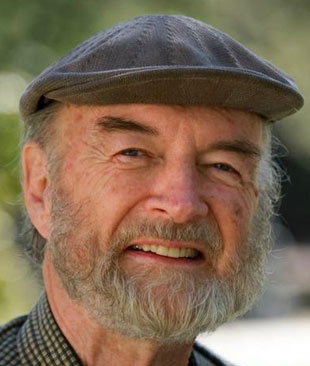The Mystery of Life
"There is an ebb and flow, a near and far, in our relation with the unknown in life, the mystery of life. 'That which shows itself and at the same time withdraws is the essential trait of what we call the mystery,' Heidegger says. The unknown, the mystery, shows itself and withdraws in words and in music and in friendship, or put the other way around, our loving and our knowing ebbs and flows. When our love is flowing, the mystery seems to be showing itself, and we seem to be knowing, and when our love is ebbing, the mystery seems to be withdrawing, and we seem to be left in a darkness of unknowing. Still, the withdrawing evokes our longing and causes the flowing to begin all over again. So we are led along the road by an elusive light, the light of mystery, that shows and withdraws and leads us on and on."
— The Music of Time: Words and Music and Spiritual Friendship
Joy
" 'I saw one life,' Wordsworth says, 'and felt that it was joy.' He says this in the first edition of The Prelude, but them suppresses the line in a later edition. But it seems true, when I see one's life, I feel that it is joy. It is when I do not see one life that I feel sadness and desire and fear. When I see my life as journey in time, I see a road taken and a road not taken, and I feel a sense of loss, but when I see it as a journey with God in time, I feel a joy and begin to hope the road taken will rejoin the road not taken, I begin, that is, to see one life. Once when I asked a Hindu friend about the motto she had inscribed on the menus in her restaurant, "God dwells in you are you,' she told me ' It cuts right through the loneliness that separates us from one another.' That terrible loneliness of the emerged and separated individual is the source of our sadness and our desire and fear. The gladness of 'one life,' on the other hand, is there, I find, simply in the sense of God-with-us on the journey in time."
— The Road of the Heart's Desire: An Essay on the Cycles of Story and Song
Reading as a Quest
" 'We read to know that we are not alone,' it is said in Shadowlands, the screenplay about C.S. Lewis, for reading, as Proust says, is 'that fertile miracle of a communication offered in solitude.' What happens when we read, or what can happen, I believe, is that we pass over into other lives and times, and then we come back to our own life and times. That is what happens also when we read the Gospel, for ' heart speaks to heart' as we read of the good tidings of 'God with us,' Emmanuel, then bringing the good news back to our own life and times, and so it is indeed a way of knowing we are not alone."
— Reading the Gospel
Story and Song
"Thinking of song as 'the leap of mind in the eternal breaking out into sound.' I find the presence of God especially in music and also in its opposite, silence. When I play the piano for a long time, I seem to be in another world, the other side of the brain perhaps, in contact with eternal things. There is a way of music then, and by contrast there is a way of words, a choice of ways for me, it has always seemed, though now in later life I see the ways coming together again into one way, as in Tolkien's words, 'He used often to say there was only one Road; that it was like a great river; its springs were at every doorstep, and every path was its tributary.' Story and song, therefore, are my way, words and music, the story of a journey and the song of God in time."
— A Journey with God in Time: A Spiritual Quest
Faith
" 'Faith is the marriage of God and the soul,' Dag Hammarskjold writes in his diary, quoting Saint John of the Cross, soon after uttering his own 'Thanks!' and 'Yes!' That is what I am coming to, I think, putting my hand in God's, a marriage of God and the soul, something very simple, almost too simple to describe, walking with God, living in spiritual faith. Perhaps this is what Kierkegaard was talking about when he said 'Purity of heart is to will one thing.' If I describe it this way, though, I realize right away that the simplicity is not attained once and for all, I have to return to it again and again after having wasted my spirit, after having wasted my time and my strength, after having fallen away from the one to the many. I have to wake up again and again, morning after morning, as it were, after having fallen asleep."
— Love's Mind: An Essay on Contemplative Life
